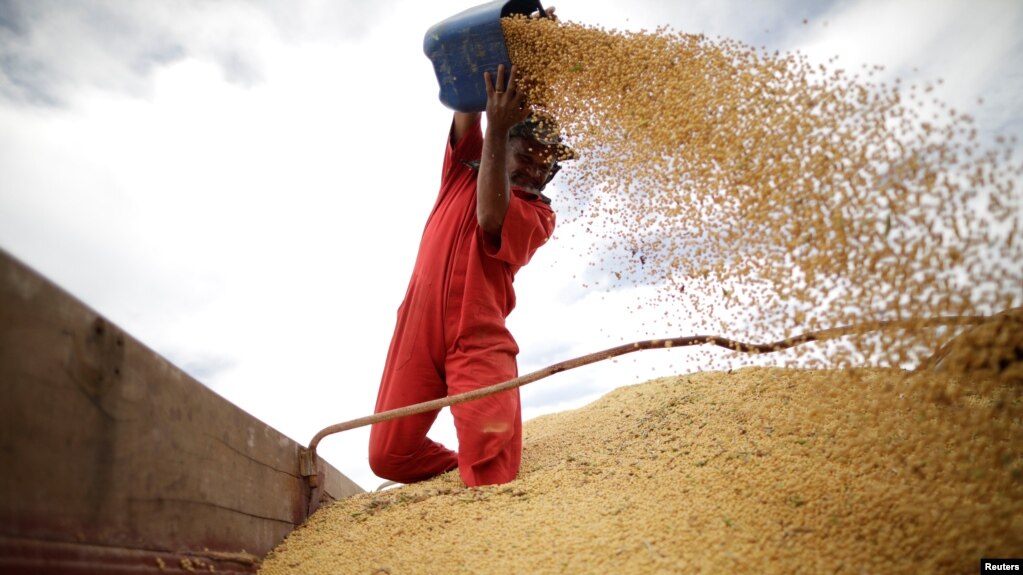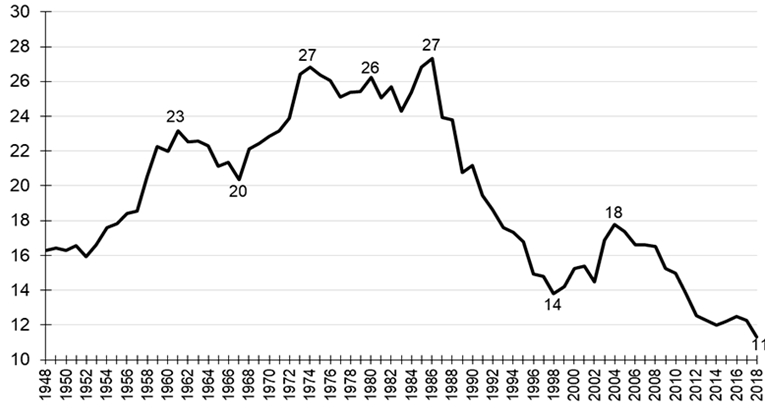President Lula’s ‘new industrial revolution’ for Brazil
Published on 2023 July 20, Thursday Back to articles
Traditionally the agriculture and extractive sectors have dominated Brazil’s economy and exports
Speaking in early July the president promised to deliver ‘a new industrial revolution’ which would allow Brazil to become more competitive while driving forward economic and social development. Lula spoke of boosting national production capacity to provide inputs for what he described as a ‘vast infrastructure programme’ that the government is planning to announce. In his interpretation, action is needed to correct an earlier multi-year policy across consecutive governments that promoted imports and ‘disincentivised’ the domestic industrial sector. The comments were made to a meeting of the 42-member Conselho Nacional de Desenvolvimento Industrial (CNDI which includes government officials and private sector representatives. Vice President Geraldo Alckmin (b.1952) — also serving as Minister of Development, Industry, Trade and Services — who coordinates the work of the Council, said that Brazil needed to ‘reindustrialise’ because industry’s share of GDP had fallen from around 20% in 1970 to less than 10%.

The debate on reindustrialisation’ — also known as ‘neo-industrialisation’ — covers a variety of approaches. Brazil’s more traditional liberal free market-focused economists tend to argue that the country’s comparative advantage favours agri-business and extractive mining, so a reduction in industry’s share of GDP should not be a cause of concern. They have also argued that the growing importance of digital services in a modern economy will reduce the industrial sector’s share of GDP. However, government thinking favours much more proactive intervention to support and promote domestic manufacturing.
The Minister for the Presidency Rui Costa (b.1963) said a major infrastructure programme was being prepared which would include building highways, railways, water and sanitation systems, clean energy, and residential housing. The government will aim to guarantee that the programme’s inputs would be supplied locally which will require the strengthening of domestic supply chains. Representatives of the important Confederação Nacional da Industria (CNI) lobby groups supported the idea of re-industrialising but complained that the current ultra-high interest rates make it hard to raise capital for expansion. Aloízio Mercadante, head Banco Nacional de Desenvolvimento Econômico Social (BNDES), said that the state-owned bank was ‘ready’ to fund capital expenditure, but that private sector participation would be ‘fundamental’ for success.
There is some uncertainty over the size and nature of future infrastructure projects. Lula’s government has expressed hostility to the idea of major privatisations, and particularly towards last year’s divestment of the Eletrobras power company at the tail end of the Bolsonaro administration, and the privatisation of water and sewage services. On the other hand however, the administration needs private sector funding and partnerships to move forward with projects which would otherwise be unaffordable. According to the Associação Brasileira da Infraestrutura e Indústrias de Base (ABDIB) industry group, infrastructure auctions and concessions could raise BRL126 billion (US$26.3 billion) in new investments between now and 2024. It also points to various planned state-level privatisations including the Sabesp water company in São Paulo and Copasa in Minas Gerais. Additionally on a divestment list for potential sale are airports: São Paulo’s Viracopos; and Rio de Janeiro’s Santos Dumont and Galeão. There is also strong interest in concessions to build and operate electricity transmission lines.
This excerpt is taken from Brazil Focus, our monthly intelligence report on Brazil. Click here to receive a free sample copy.The July 2023 issues of Brazil Focus also includes the following:
Politics
- Has the Lula administration reached a sweet spot?
- Implications
- Bolsonaro ban raises questions over future of the right
Foregin Relations
- Free trade deal with EU still looking elusive
- Lula seeks to build Amazon diplomacy
Security
- Rio’s governor acknowledges defeat over police bodycams
- More security bases in the Amazon
Economy & Business
- Lula pledges to reindustrialise
- China’s BYD to build major electric vehicle plant in Bahia
- Banks face combination of threats and opportunities
Energy Sector
- Upgrading power transmission network to include renewables
- Brazil well-placed to exploit oil and gas opportunities


